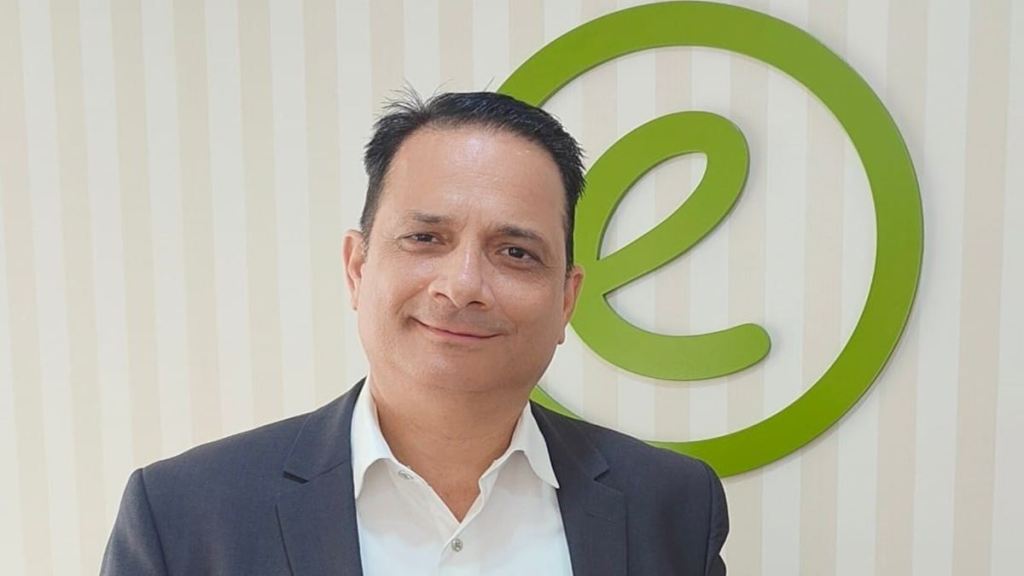Given its crucial role in shaping India’s overall development, the government places significant emphasis on the infrastructure sector and has been actively implementing pragmatic policies, says Sandeep Gulati, MD, India and South Asia, Egis, a France-based leading global consulting, construction engineering and operating firm.
In an exclusive interview with Sanjeev Sinha, Mr Gulati gives his views on how infrastructure is propelling India’s ambitious growth narrative and shares his business outlook. Excerpts:
How do you think infrastructure can play a critical role in India’s growth story?
Infrastructure stands out as a pivotal vertical propelling India’s ambitious growth narrative and remains a key driver of the country’s economy. Given its crucial role in shaping India’s overall development, the government places significant emphasis on the infrastructure sector. To ensure the establishment of sustainable, world-class infrastructure, the government has been actively implementing pragmatic policies. The diverse landscape of India’s infrastructure sector encompasses power, bridges, dams, roads, development of smart cities, water management, and other public utilities.
Also Read: The Journey to Homeownership: From planning to the possession of your dream house
Has the government become more aggressive in terms of infra building?
There has been a consistent and increasing emphasis on infrastructure from the government every year. The current administration demonstrates a strong bullish stance on infrastructure development, and it appears that the strategic focus is aligned with the right trajectory. In a recent move, the government has allocated Rs 111 crore under the National Infrastructure Pipeline (NIP) for the fiscal years 2019-25. Notably, a substantial 71% of the projected infrastructure investment is earmarked for sectors such as energy, roads, urban development, and railways.
The introduction of the online “holistic governance” system, PM Gati Shakti, is a significant step in streamlining infrastructure planning and execution. This innovative approach connects 16 ministries, including Roads and Highways, Railways, Shipping, Petroleum and Gas, Power, Telecom, Shipping, and Aviation. The primary objective is to facilitate comprehensive coordination and reduce implementation costs for infrastructure projects.
PM Gati Shakti is expected to create a multi-modal network by harmonizing the efforts of various government departments. Furthermore, initiatives like the Asset Monetization Scheme and the implementation of new guidelines on procurement are contributing to the positive momentum in the Indian infrastructure sector. The government’s unwavering focus on infrastructure is evident, marking a substantial surge in attention and commitment over the years.
What is Engineering Consulting and its scope in India?
Engineering and technical consultancy services encompass an extensive range of premium offerings, categorized into pre-project, project execution, and post-project phases. These services cover a broad spectrum of functions, including project identification and evaluation, environmental impact assessment, technology development and sourcing, preparation of feasibility reports and market studies, project design, equipment procurement and erection, engineering design services, project management services, architectural and construction engineering services, as well as project commissioning, operations, and maintenance. The demand for specialists with experience and expertise is imperative to provide sustainable solutions for the evolving infrastructure needs in India.
Anticipated to experience a rapid surge, the demand for these services in India is poised to propel the growth of the consultancy sector. This growth underscores the increasing reliance on specialized knowledge and skills required to address the dynamic challenges within the country’s infrastructure landscape.
What are your key focus areas and business outlook?
During my tenure of five years at Egis, my primary focus has centered around four key areas: Growth, innovation, digitalization, and active participation in nation-building initiatives for the region. I have played a pivotal role in leading Egis through a transformative phase, significantly expanding its core business, diversifying into new portfolios and geographies, establishing a Global Design Centre, and driving inorganic growth ambitions in the region.
I want to emphasize our strong optimism and enthusiasm for India. The group views India as a crucial and vital nation, evident in the fact that, in terms of the number of people, we stand as the largest outside of France within the organization. This alone underscores the immense importance attributed to India.
What are the key achievements and strategic plans for the Indian market?
Egis recognizes India as one of the rapidly-growing regions globally and aims to strengthen its leadership in the Rail, Water, and Road sectors. The company is committed to expanding its influence in emerging sectors such as Tourism, Sports, and Healthcare. For instance, Egis has recently ventured into the tourism sector by providing Project Management and Development Consultancy (PDMC) services to the Mizoram Tourism Development Authority, leveraging its extensive global tourism expertise.
In the sports domain, Egis India has entered the vertical with the completion of the Birsa Munda International Stadium in Rourkela, Odisha, where the FIH men’s hockey World Cup 2023 was hosted. Serving as the Programme Management Consultant (PgMC) for IDCO, Egis India played a crucial role in overseeing the development of the largest hockey stadium in the country, boasting a seating capacity of 20,000. The company has also contributed supervision and monitoring services to various sports complexes, including the renowned Kalinga Stadium, spread across Odisha.
Over the past 27 years, Egis India has successfully executed approximately 500 projects in the country, encompassing metro projects, the Mumbai Coastal Road Project, Atal Mission for Rejuvenation and Urban Transformation (AMRUT), Dam Rehabilitation & Improvement Project (DRIP), Pradhan Mantri Awas Yojana – Madhya Pradesh, and smart cities initiatives.
Egis has expanded its presence beyond India, notably in Bangladesh, where it collaborates with Dhaka Mass Transit Company Limited (DMTCL) for the design of Dhaka Metro Line 5 South. Additionally, the company serves as the project management consultant for The Mongla Port Authority, contributing to the Upgradation of Mongla Port Project to accommodate future capacity, support economic growth, and facilitate hinterland industrialization.

